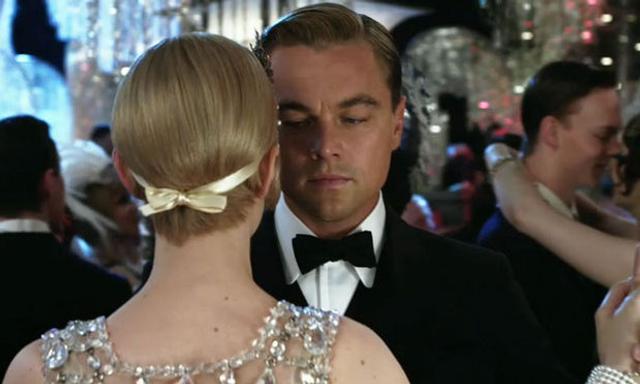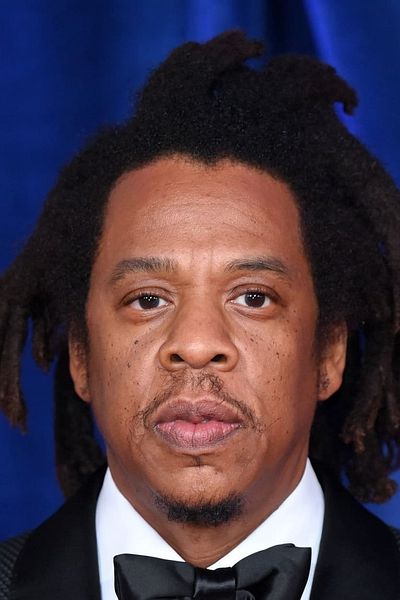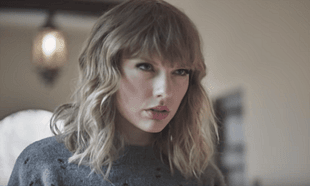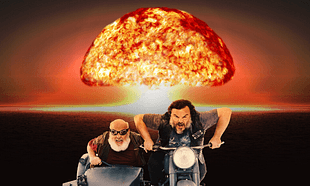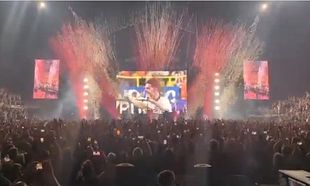There are a few common threads which unite the films which occupy Australian director Baz Luhrmann's filmography. Four of his five films have ambitiously played with times and settings, with one foot in history and another in the future. His modern day retelling of Romeo + Juliet is one example of this, Moulin Rouge is another and Australia...well, let's just forget about Australia.
The Great Gatsby, Luhrmann's adaptation of the classic F. Scott Fitzgerald novel which tells the tale of a decadent and idealistic world occupied by the titular Jay Gatsby, is Luhrmann's latest flick - and much like Romeo + Juliet and Moulin Rouge, music plays a central role in defining the landscape which Luhrmann creates.
Luhrmann handed over the musical reins to a very trustworthy lieutenant: Jay-Z. Besides the obvious name similarities with Luhrmann's central character (played by Leonardo DiCaprio, incidentally), Baz Luhrmann elected to make a bold move by updating the 1920's era jazz which would have occupied the ears of Fitzgerald's characters with a Jay-Z curated collection of mostly hip hop.
Whereas Australia's soundtrack was sparse and withdrawn, Luhrmann has given Jay-Z license to parade some of the glitzier and camper songs of his era's repertoire throughout the collection, echoing the theme of lavish decadence which swims through Fitzgerald's words.
Anton Monsted, Luhrmann's executive music producer, explains further: "We wanted a blend, a weave", he told the Hollywood Reporter. "Baz and I call it the 'sliding doors' between music that is very true to the period of the movie's setting in 1922 and the music of today. When F. Scott Fiztgerald evoked the popular music of his period, he was criticized because jazz was ephemeral, of the moment. We revere that music now because 80 years have passed. We regard it as a serious art form unto itself. For Fitzgerald, it was 'the racy, adventurous feel of that music".
Jay-Z, according to Monsted, was influential not just in soundtrack ideas. "At a very early stage Jay-Z expressed his enthusiasm to come aboard", he said. "He's been a very solid collaborator and partner on everything in the film, not just across the board."
As for the songs themselves, Jay-Z himself sets the tone with his own compositions 'No Church For The Wild' and '100$ Bill' introducing a stylised juxtaposition between Gatsby's universe and our own, a sort of retro-modern theme which is repeated throughout. sill.i.am's 'Bang Bang' is a disappointment though, while the rest of the album tracklisting reads like a who's who of popular music stars of the past few years - Gotye, Emeli Sande, Lana Del Rey and The xx all show up.
Mr's Z herself, Beyonce and her pal Andre 3000, were even roped in on the action and spits out an unremarkable whispered version of Amy Winehouse's 'Back In Black', which really only serves to heighten the sense of loss still prevalent because not even Queen Bey can come close to the nuances that Winehouse brought to the song.
There are 'big' numbers throughout, no doubt providing the soundtrack to Gatsby's lavish parties and, somewhat unexpectedly given the superstars on show here, it's the two Bryan Ferry songs ( his re-telling of Roxy Music's 'Love Is The Drug' and the Emeli Sande co-starrer cover of 'Crazy In Love') which are the two standouts.
Thematically, the soundtrack hits every single beat of the novel: love, loss, heartache, decadence and, perhaps involuntarily with one or two of the tracks, the empty, soulless pursuit of unobtainable pleasure.
Words by John Balfe
The Great Gatsby soundtrack is available now, and the film hits cinemas on 16th May.
